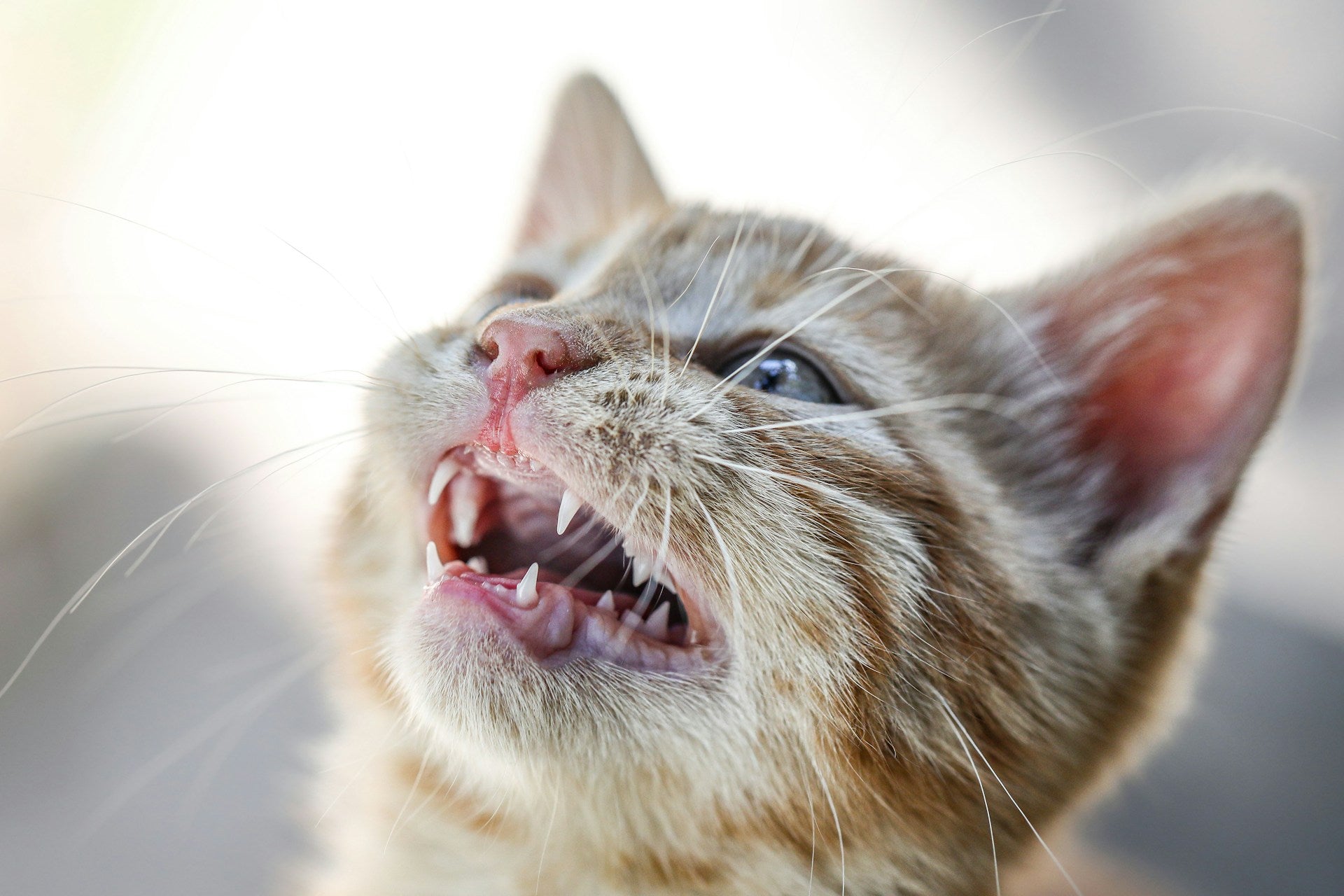
Cats' teeth play a crucial role in their overall health, and understanding their dental development can help you care for your feline friend better. Whether you're trying to determine the age of a kitten or are curious about the stages of dental growth, this guide will provide you with the essential information you need. We've answered some of the most frequently asked questions when it comes to cats teeth. Let's dive in!
How Many Teeth Does a Cat Have?
Adult cats have a total of 30 teeth. These include:
- 12 Incisors (6 on the top and 6 on the bottom)
- 4 Canines (2 on the top and 2 on the bottom)
- 10 Premolars (6 on the top and 4 on the bottom)
- 4 Molars (2 on the top and 2 on the bottom)
Kittens, on the other hand, have 26 baby (deciduous) teeth, which are eventually replaced by the 30 permanent teeth as they grow.
When Do Kitten Teeth Come In?
Kitten teeth begin to emerge at about 2 to 3 weeks of age. These are the deciduous teeth, commonly referred to as baby teeth.
By the time a kitten is 6 to 8 weeks old, all 26 baby teeth should be fully erupted.
How to Tell the Age of a Kitten by Teeth
One of the most reliable ways to estimate a kitten's age is by examining their teeth. Kittens go through a predictable sequence of dental development, which can help you pinpoint their age with reasonable accuracy.
- Birth to 2 Weeks: Kittens are born without teeth.
- 2 to 3 Weeks: The first set of teeth, known as the deciduous or baby teeth, start to emerge. These tiny, sharp teeth are primarily the incisors.
- 3 to 4 Weeks: The canines (the long, pointed teeth) begin to appear.
- 4 to 6 Weeks: The premolars start to emerge.
- 6 to 8 Weeks: By this time, all 26 baby teeth should be present, and the kitten is typically around 8 weeks old.
By observing which teeth have erupted, you can estimate a kitten's age. For example, if only the incisors are visible, the kitten is likely around 3 weeks old. If all the baby teeth are present, the kitten is likely around 8 weeks old.
When Do Kitten Teeth Fall Out?

As kittens grow, they will start to lose their baby teeth to make room for their permanent adult teeth. This process is known as teething.
- 3 to 4 Months: The kitten's baby teeth will begin to fall out at around 11 weeks, usually starting with the incisors.
- 4 to 6 Months: The canines and premolars will follow, with the last baby teeth typically being shed by 6 months of age.
This teething process can cause some discomfort for the kitten, so you might notice them chewing more frequently or being a bit irritable. Offering safe, chewable toys can help alleviate some of the discomfort during this period.
By the time this process is complete, your kitten will have a full set of 30 permanent teeth, which include:
- 12 Incisors
- 4 Canines
- 10 Premolars
- 4 Molars
Molars are unique to adult cats and do not have a baby tooth precursor.
How Often Should I Brush My Cats Teeth?

Brushing your cat's teeth should ideally be done daily to maintain optimal dental health. However, brushing at least three times a week can still be beneficial if daily brushing is not feasible.
Regular brushing helps prevent plaque buildup, which can lead to tartar formation, gum disease, and other dental problems. Start slowly to get your cat accustomed to the process, using a cat-specific toothbrush and toothpaste designed for pets. Consistency is key to keeping your cat's teeth and gums healthy.
Conclusion
Understanding the stages of dental development in kittens is key to ensuring their health and well-being. By monitoring the growth and loss of teeth, you can estimate a kitten or cat's age and anticipate the needs that arise during teething. Whether you're caring for a young kitten or an adult cat, maintaining good dental hygiene is crucial to your pet's overall health, so regular check-ups with a veterinarian are highly recommended.

Comments (0)
Back to Noots Cat Blog